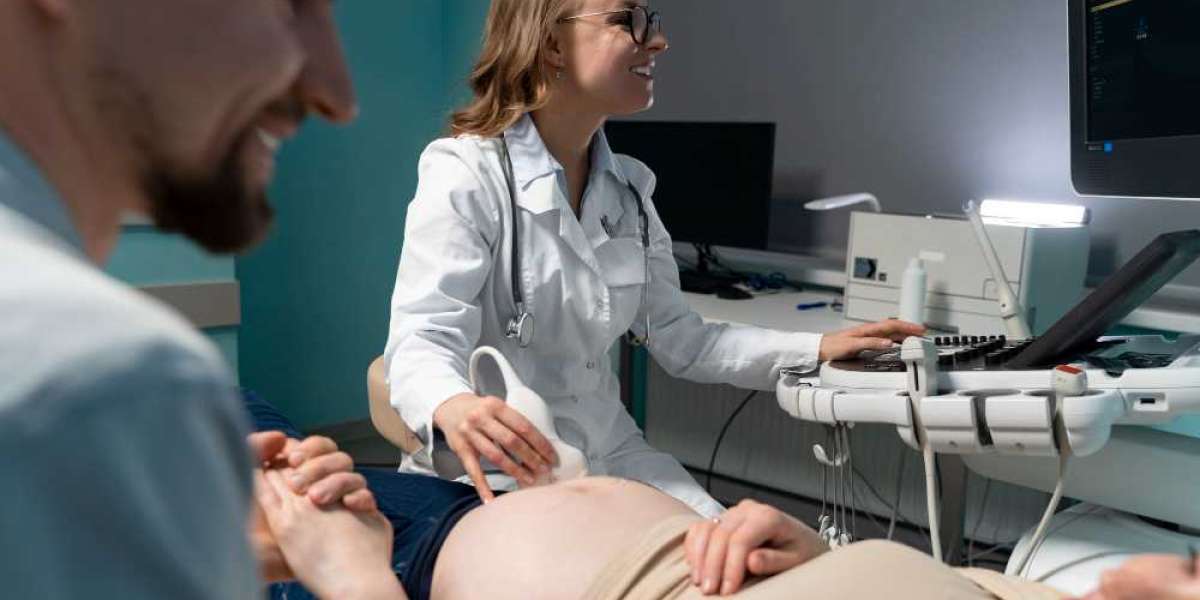When it comes to women’s health, one of the most crucial professionals you’ll encounter is a gynecologist. These medical experts are dedicated to managing and treating a variety of conditions that affect the female reproductive system, from menstrual irregularities to pregnancy and menopause. Regular visits to a gynecologist are important for maintaining good health, preventing potential issues, and ensuring that any concerns are addressed early on. If you are looking for expert care in Karachi, finding the right gynecologist in Karachi can make all the difference in ensuring your health and well-being.
1. What is a Gynecologist?
A gynecologist is a medical professional who specializes in women’s reproductive health. This specialty covers a wide range of services, from the management of menstrual problems, fertility issues, and pregnancy care to diagnosing and treating sexually transmitted infections (STIs), and managing conditions like endometriosis, fibroids, and pelvic pain.
Gynecologists are trained to perform routine screenings like Pap smears and breast exams, both of which are essential for early detection of conditions like cervical cancer and breast cancer. Gynecologists also provide essential advice on contraception, family planning, and sexual health, as well as menopausal care and hormone therapy.
While the term “gynecologist” is often used interchangeably with “obstetrician,” they have slightly different focuses. Obstetricians specialize in pregnancy and childbirth, while gynecologists focus on overall reproductive health. However, many gynecologists are also trained in obstetrics, so they can handle both aspects of women’s health.
2. When Should You Visit a Gynecologist?
Women should begin seeing a gynecologist regularly in their teenage years, usually around the time they become sexually active or reach the age of 21. However, it’s important to recognize that visits to a gynecologist aren’t limited to just those concerns. Here are some common reasons why you should consider booking a visit:
- Menstrual Irregularities: If you experience missed periods, excessive bleeding, or painful periods, it could be a sign of an underlying issue such as polycystic ovary syndrome (PCOS), fibroids, or thyroid problems.
- Painful Sex or Pelvic Pain: Experiencing pain during intercourse or persistent pelvic pain can indicate conditions like endometriosis or pelvic inflammatory disease.
- Pregnancy Planning or Fertility Concerns: If you're planning to get pregnant or facing challenges with fertility, a gynecologist can offer guidance, conduct tests, and provide fertility treatments if necessary.
- Changes in Vaginal Discharge or Odor: Unusual discharge or a strong odor could indicate an infection like a yeast infection, bacterial vaginosis, or an STI.
- Breast Health: If you notice changes in your breasts such as lumps, swelling, or tenderness, your gynecologist can perform breast exams and guide you in detecting early signs of breast cancer.
3. What to Expect During Your First Visit?
Many women feel apprehensive before visiting a gynecologist, especially for the first time. However, understanding what to expect can help ease any anxiety.
The first visit will typically involve a comprehensive consultation. Your gynecologist will ask about your medical history, including any reproductive health issues, family history of conditions like cancer, and details about your menstrual cycle. This information helps your gynecologist understand your unique health needs and develop an appropriate plan of care.
After the consultation, you can expect a physical examination, which may include:
- Pelvic Exam: This involves the gynecologist examining the external genitalia and conducting an internal examination using a speculum to view the cervix and check for abnormalities such as infections or growths.
- Pap Smear: A routine screening test to detect cervical cancer or abnormal cells on the cervix. This test is recommended for women over the age of 21, and it is typically done every 3 years.
- Breast Exam: A basic examination to check for any lumps, irregularities, or changes in the breast tissue.
If you’re not sexually active or not experiencing any issues, the first visit may focus more on general health and preventive measures. Your gynecologist might also advise on contraceptive options or general tips for maintaining reproductive health.
4. Common Procedures and Tests Performed by a Gynecologist
Your gynecologist may recommend several tests and procedures depending on your health concerns. These include:
- Pap Smears: As mentioned earlier, a Pap smear is a test for early signs of cervical cancer. It involves scraping a small sample of cells from the cervix for analysis.
- Ultrasound: In some cases, if there are concerns about ovarian cysts, fibroids, or other issues, a pelvic ultrasound may be ordered. This non-invasive test uses sound waves to create an image of the pelvic organs.
- Blood Tests: These can help diagnose hormonal imbalances, infections, or conditions like diabetes and thyroid disorders that may affect reproductive health.
- Colposcopy: If there are abnormal Pap smear results, a colposcopy may be performed, which involves using a magnifying device to closely examine the cervix.
- Biopsy: If any abnormal growths or lesions are detected, a biopsy may be necessary to determine if they are cancerous.
5. Finding the Right Gynecologist in Karachi
Finding a "https://mmi.edu.pk/our-specialties/gynecologists-in-karachi/">gynecologist in Karachi who you feel comfortable with is essential. Here are some tips for choosing the right one:
- Research and Referrals: Ask for recommendations from trusted friends, family members, or your primary care doctor. Reviews and testimonials online can also provide valuable insights.
- Qualifications and Experience: Make sure your gynecologist is well-qualified, experienced, and registered with relevant medical boards. You can also check if they specialize in any specific areas, such as infertility or menopause management.
- Comfort and Communication: It’s important that you feel at ease with your gynecologist. During your first visit, pay attention to whether the doctor listens to your concerns, explains things clearly, and makes you feel comfortable discussing sensitive issues.
6. Why Regular Visits to a Gynecologist Are Essential for Your Health
Gynecological care isn’t just for when something goes wrong—it’s a vital aspect of maintaining your overall health. Regular visits to your gynecologist can help:
- Detect Health Issues Early: Many gynecological conditions, such as cervical or breast cancer, may not show symptoms early on. Routine checkups and screenings can catch these issues before they become serious.
- Manage Reproductive Health: Whether you're dealing with fertility concerns, contraception, or family planning, a gynecologist is essential in helping you navigate these important aspects of life.
- Provide Preventive Care: Preventive measures such as vaccinations (e.g., HPV vaccines) and advice on maintaining a healthy lifestyle can contribute to long-term health.
Conclusion
A gynecologist plays an important role in a woman’s health journey. Regular check-ups, screenings, and consultations with a professional gynecologist can ensure that potential issues are detected early and managed effectively. If you’re in Karachi, finding a trusted gynecologist in Karachi can provide you with the care and support you need for a healthy, fulfilling life. If you’re due for a check-up, don't hesitate to make an appointment today. Your health is worth it.








